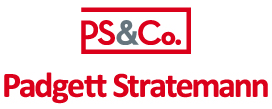
By Bryan Edwards, Manager of PS&Co.’s Accounting Solutions Group
Most small business owners start with a dream of independence that then turns into a vision of how to make money while meeting the needs of others. That need is met with a marketable product or set of skills that typically involves doing something the entrepreneur really enjoys. But along with the passion comes the reality of other things you have to do to ensure you are really doing as well as it seems you are doing. Financial reporting, clear accounting procedures, and internal controls are the keys to distinguishing between perceptions and reality.
If you have bank financing, your banker will require regular financial reporting; and even if you don’t, some basic accounting controls and procedures are necessary. You may hire someone (or several people) to work in your office to keep track of the paperwork while you sell and run your business. There are many good accounting packages out there you can purchase off the shelf at a relatively low cost (QuickBooks works well for many, if not most start-ups). But simply buying an accounting package, hiring a couple of people, and hoping for the best never works out well. A systematic approach to accounting, finance, and managing the money that begins even before you open the doors is necessary.
Doing so provides several benefits, namely:
- Greater organization
- A common purpose among all workers
- Cost savings
- Happier, more productive employees
- Less risk of fraud and theft
- Bankers who are more likely to extend additional credit
- Clarity of results that isolates both problems and opportunities quickly
Internal controls are key. If you only have one employee in your office, be sure another employee works in at least a part-time capacity in the office so that the same person is not handling, reconciling, and accounting for cash, for instance. The person who makes a bank deposit should not prepare checks. Have someone who does not prepare checks or make the bank deposit reconcile the bank account. And the check preparer should not be the sole signer of checks unless it is you, the owner. Having at least two sets of eyes on each accounting process (e.g., cash receipts and cash disbursements) greatly lessens the likelihood of theft. No employee should effectively authorize his or her own work, particularly when that work involves handling currency, making bank deposits, and preparing checks. It is recommended that, initially, the entrepreneur take a very active role by signing checks personally and approving all wire transfers so that he or she can guard against any fictitious payees. While there is no perfect set of internal controls, there are a few simple precautions you can take that will lessen the likelihood of fraud and theft.
When contemplating a new business venture one of your first conversations should be with a CPA firm. Eventually you will need to deal with taxes, but even before then, the firm can recommend software, help you set up procedures, and even help you find a bookkeeper. A close working relationship with a CPA firm is typically money well spent. Hire someone you trust and with whom you feel you can communicate candidly about the ups and downs of running a business.
Finally, recognize that you must invest in your accounting and internal control environment. Trying to pinch pennies at the outset generally leads to more costs in the long run, not to mention squandered opportunities because you didn’t see something that clear, concise, and timely financial reporting would have otherwise revealed to you.
For more information on financial reporting or internal controls, please contact Bryan Edwards at (210) 828-6281.
